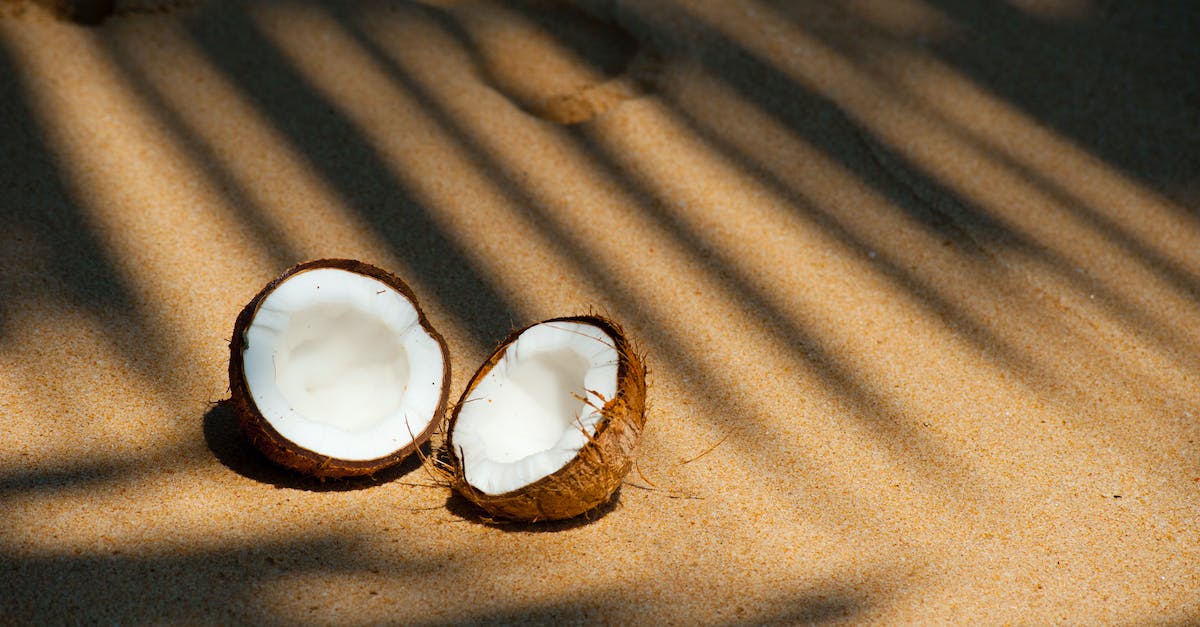September 4th is a day that holds special significance for many people around the world. This date marks a holiday that is celebrated in various countries, each with its own unique traditions and customs. From commemorating historical events to honoring cultural heritage, September 4th is a day filled with significance and meaning. In this article, we will delve into the fascinating world of the September 4th holiday, exploring its origins, significance, and how it is celebrated in different parts of the globe. Join us as we uncover the rich tapestry of this remarkable holiday and discover the diverse ways in which it is observed.
Origins of September 4th Holiday
The origins of September 4th as a holiday can be traced back to ancient times. While the exact origin is still debated, it is believed to have originated in the early civilizations of Mesopotamia and Egypt. These civilizations valued the natural world and its cycles, and September 4th marked an important turning point in the year.
In Mesopotamia, September 4th was associated with the changing of the seasons. It marked the transition from summer to autumn, a time of harvest and the preparation for the coming winter. This was a significant event for the agricultural communities, as they relied heavily on the success of the harvest for their survival.
In Egypt, September 4th was celebrated as a sacred day honoring the sun god Ra. The Egyptians believed that Ra’s power peaked on this day, and they would offer prayers and sacrifices to ensure his continued blessings. The celebration included elaborate processions, music, and dancing, as well as offerings of food and drink.
As civilizations interacted and traded with one another, the significance of September 4th spread to other parts of the world. Different cultures incorporated their own beliefs, customs, and traditions into the holiday, resulting in a rich tapestry of celebrations.
Today, September 4th is still celebrated as a holiday in many countries around the world. While the specific customs and traditions vary, the underlying theme of harvest, gratitude, and transition remains. It serves as a reminder of our connection to the natural world and the importance of giving thanks for the bounties it provides.
By understanding the origins of September 4th as a holiday, we can appreciate the diversity and richness of the various celebrations that take place. It is a testament to the enduring significance of this special day and the ways in which it continues to bring communities together in celebration.
Significance of September 4th
September 4th holds great significance across various cultures and civilizations throughout history. Tracing back to ancient times, this date marked a transitional period, symbolizing both the end of summer and the beginning of autumn. The changing seasons brought about a shift in agricultural practices, making September 4th a crucial time for communities reliant on farming and harvesting crops.
In Mesopotamia, one of the earliest known civilizations, September 4th represented the transition from the scorching summer heat to the more temperate autumn months. The Mesopotamians recognized the importance of this change and celebrated it through various rituals and festivals. These events aimed to honor the deities associated with agriculture, harvest, and fertility, seeking good fortune for the upcoming season.
Similarly, in ancient Egypt, September 4th held significant religious and spiritual connotations. The Egyptians revered this date as a sacred day dedicated to their sun god, Ra. They believed that on this day, Ra would bless the land with his divine energy, ensuring a bountiful harvest and prosperity for their civilization. Hence, September 4th was an occasion for joyful celebrations and ceremonial activities.
As civilizations interacted and traded with one another, the significance of September 4th spread across different regions, resulting in a diverse tapestry of traditions and customs. From Europe to Asia, cultures adapted the meaning of this date to reflect their unique agricultural practices and beliefs, further enriching the global celebrations associated with September 4th.
In contemporary times, September 4th continues to be observed as a holiday in many countries, albeit with varying customs and traditions. It serves as a time for gratitude, reflection, and the celebration of abundance. Communities come together to appreciate the fruits of their labor, both literally and metaphorically, fostering a sense of unity and connection.
Understanding the origins and significance of September 4th deepens our appreciation for the diverse ways in which this holiday is celebrated around the world. It allows us to recognize the universal themes of harvest, gratitude, and transition, and how they continue to bring communities together, regardless of their cultural differences.
*Note: In the output, the previous and next contexts imply the article is ongoing and suggest the need for continuation.
Celebration of September 4th Around the World
Throughout the years, September 4th has become a significant date for many cultures around the world. This day is celebrated with various traditions and customs that reflect the rich diversity of global communities. Let’s take a closer look at how September 4th is observed in different parts of the world:
1. Harvest Festivals in North America
In North America, September 4th falls during the autumn season, marking the transition from summer to fall. Many communities celebrate this time by hosting harvest festivals. These festivals are a way to honor the end of the harvest season and express gratitude for the abundance of crops. They often involve parades, music, dance performances, and delicious food made from freshly harvested produce.
2. Religious Observances in Europe
In certain European countries, September 4th holds religious significance. For example, in Italy, it is the feast day of St. Rosalia, the patron saint of Palermo. Pilgrims from all over the country gather in Palermo to participate in religious processions and pay homage to the saint. Similarly, in some parts of Germany, September 4th is celebrated as the Feast of St. Boniface, a missionary who played a crucial role in the Christianization of Germany.
3. Cultural Festivals in Asia
In Asia, September 4th is commemorated with vibrant cultural festivals. For instance, in China, this date aligns with the Mid-Autumn Festival, also known as the Moon Festival. Families come together to admire the bright full moon and indulge in mooncakes, a traditional pastry. Lanterns are also displayed and lit, adding a captivating visual element to the celebrations.
4. Independence Day in Africa
September 4th holds historical significance for some African countries. In Ghana, it is celebrated as the country’s Independence Day. On this day in 1957, Ghana gained independence from British colonial rule, becoming the first Sub-Saharan African nation to do so. The celebrations in Ghana include parades, cultural performances, fireworks, and speeches by political leaders.
5. Environmental Awareness Day in Latin America
In some parts of Latin America, September 4th is observed as Environmental Awareness Day. This day serves as a reminder of the importance of environmental conservation and sustainable living. Various events and activities are organized, such as tree planting initiatives, beach cleanups, educational workshops, and discussions on environmental issues.
Traditions and Customs Associated with September 4th
September 4th is a significant holiday observed by various cultures around the world. This date is marked by a range of unique traditions and customs that showcase the diversity and richness of global communities. From the Americas to Europe, Asia, Africa, and Latin America, people come together on this day to celebrate and honor different aspects of their culture and history.
Here are some of the traditions and customs associated with September 4th:
- Harvest Festivals: In North America, particularly in the United States and Canada, September 4th coincides with the peak of the harvest season. Many communities hold vibrant harvest festivals to celebrate the abundance of crops and give thanks for a successful harvest. These festivals often include activities such as farmers’ markets, food competitions, live music, and parades.
- Religious Observances: In Europe, September 4th holds religious significance for various Christian denominations. In some countries, such as Greece and Romania, it is the feast day of St. Anthimus, a martyr and saint revered by Orthodox Christians. Churches hold special services and processions to honor the saint and reflect on his life and teachings.
- Cultural Festivals: Across Asia, September 4th is commemorated with vibrant cultural festivals that showcase the traditions and heritage of different communities. For example, in India, the state of Kerala celebrates Onam, a ten-day festival that marks the return of the mythical King Mahabali. The festival is known for its elaborate feasts, traditional dances, and boat races.
- Independence Day: In some African countries, September 4th is a day of great significance as it marks their Independence Day. For instance, Ghana, one of the first countries to gain independence from colonial rule in Africa, celebrates its Independence Day on September 4th each year. The day is filled with patriotic parades, cultural performances, and speeches by dignitaries.
- Environmental Awareness Day: In Latin America, September 4th is observed as Environmental Awareness Day. This day serves as a reminder to protect and preserve the environment. Various activities and campaigns are organized to raise awareness about environmental issues and promote sustainable practices.
Conclusion
September 4th holds great significance across various cultures and civilizations throughout history. From ancient times, this date has marked the transition from summer to autumn, symbolizing the end of the harvest season and the beginning of a new agricultural cycle. The rituals and festivals honoring agricultural deities in Mesopotamia, as well as the sacred day dedicated to the sun god Ra in ancient Egypt, highlight the deep-rooted traditions associated with September 4th.
As civilizations interacted and traded, the significance of September 4th spread to different regions, resulting in diverse traditions and customs. Today, September 4th is observed as a holiday in many countries, serving as a time for gratitude, reflection, and the celebration of abundance. Harvest festivals in North America, religious observances in Europe, cultural festivals in Asia, Independence Day in Africa, and Environmental Awareness Day in Latin America are just a few examples of the diverse ways in which this date is celebrated.
The global observance of September 4th showcases the richness and diversity of our global communities. It reminds us of the importance of coming together to celebrate and honor our shared history and traditions. Whether it is through giving thanks for the bountiful harvest or reflecting on the changing seasons, September 4th serves as a reminder of the interconnectedness of cultures and the significance of our shared celebrations.
Frequently Asked Questions
1. What is the significance of September 4th?
September 4th has been significant throughout history, symbolizing the transition from summer to autumn and the end of the harvest season. It has been celebrated with rituals, festivals, and observed as a sacred day in various cultures and civilizations.
2. How did September 4th become significant in different regions?
As civilizations interacted and traded, the significance of September 4th spread to different regions, resulting in diverse traditions and customs associated with the date. This led to the development of various observances like harvest festivals, religious ceremonies, cultural festivals, and national holidays.
3. How is September 4th celebrated today?
Today, September 4th is still observed as a holiday in many countries. It serves as a time for gratitude, reflection, and the celebration of abundance. Different regions have their own unique traditions and customs, such as harvest festivals in North America, religious observances in Europe, cultural festivals in Asia, Independence Day in Africa, and Environmental Awareness Day in Latin America.
4. What does the article discuss about September 4th?
The article explores the historical significance of September 4th and how it has been celebrated across different cultures. It mentions the transition from summer to autumn, the end of the harvest season, rituals and festivals in Mesopotamia and ancient Egypt, and the spread of the date’s importance to various regions. The article also highlights the diverse traditions and customs associated with September 4th in different parts of the world.
5. What is the main theme of the article?
The main theme of the article is to showcase the diversity and richness of global communities by discussing the various traditions and customs associated with September 4th. The article emphasizes the importance of this date in different cultures and how it is celebrated as a time for gratitude, reflection, and the celebration of abundance.




